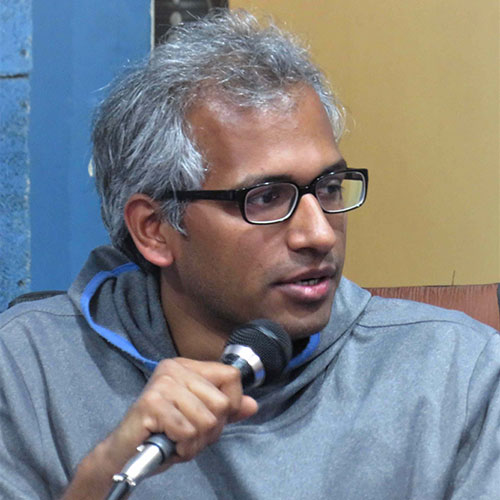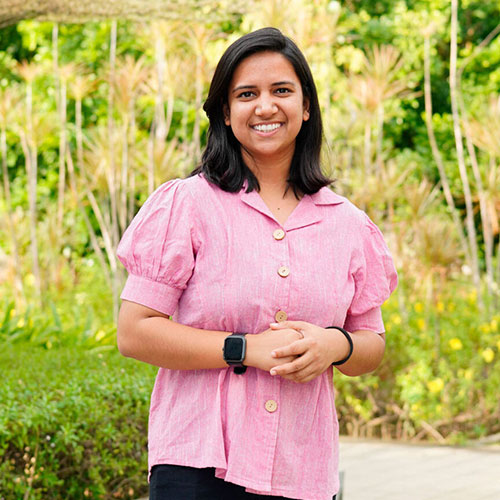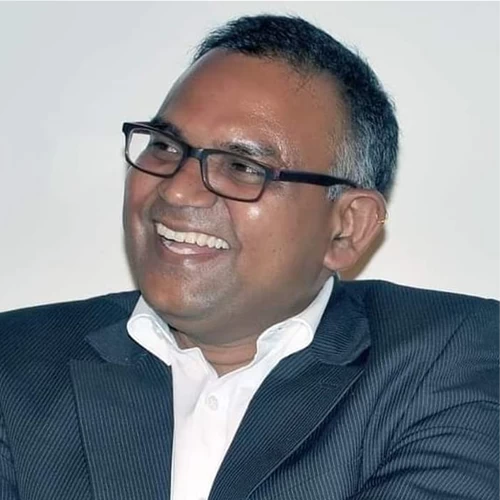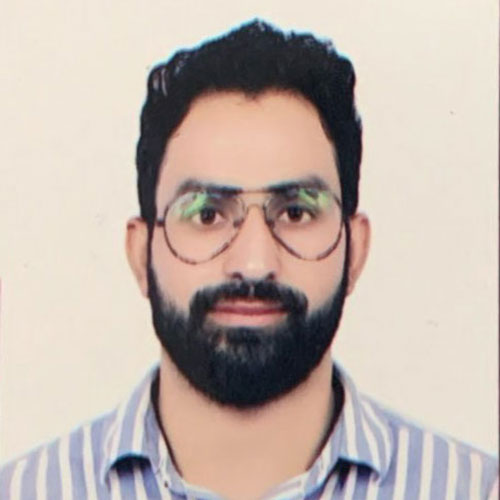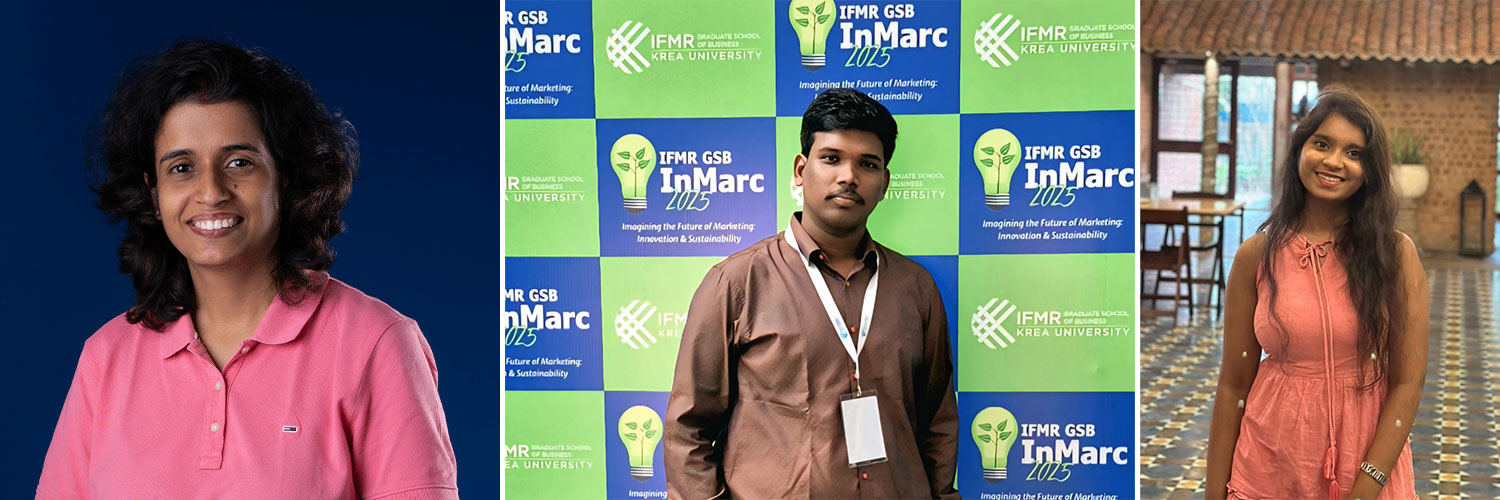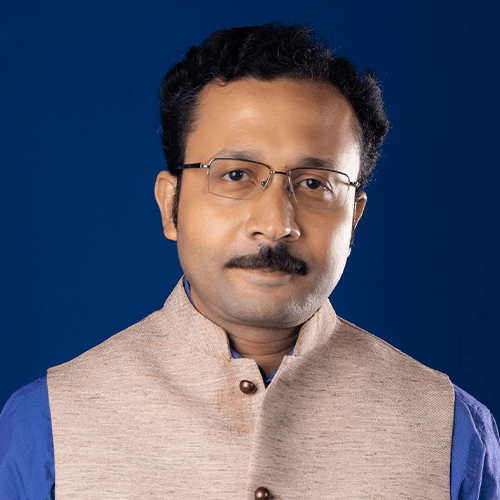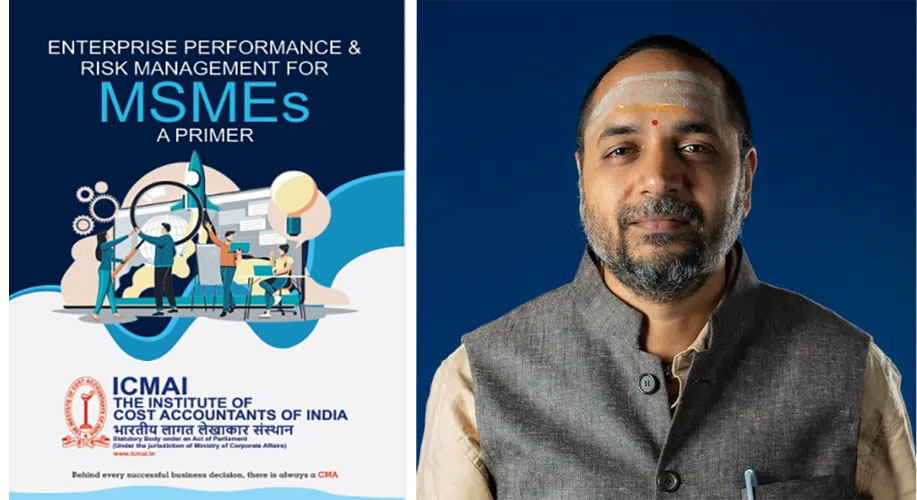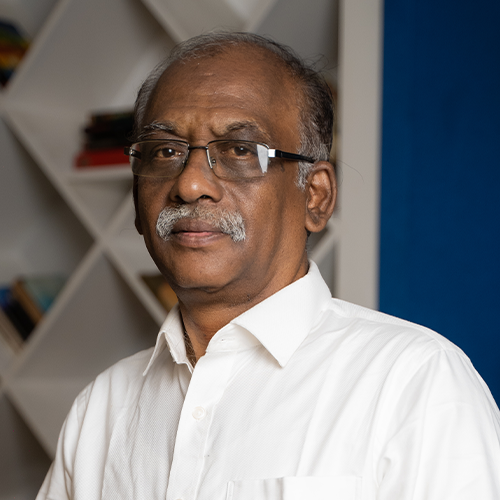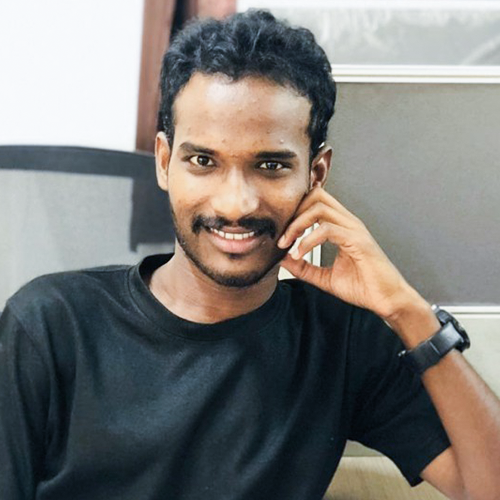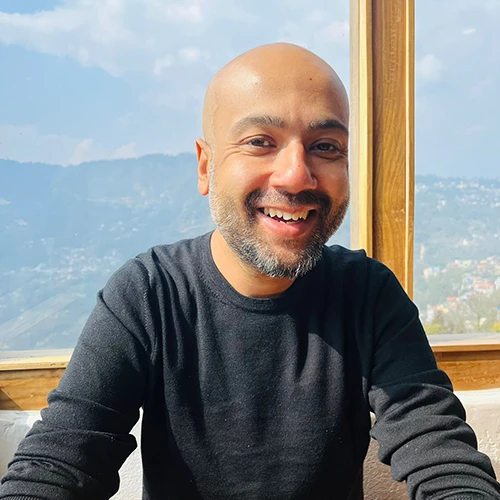From Ideas to Impact
On 23 January 2026, Krea University marked an important milestone with the inauguration of the Centre for Entrepreneurship (CFE), supported by Catalyst. The launch brought together inquisitive and aspiring entrepreneurs among students alongside faculty members, and staff from across the Krea community to celebrate the setting up of an incubation centre dedicated to nurturing ideas and transforming them into viable ventures. Envisioned as a space for exploration, experimentation, and mentorship, the Centre aims to provide students with the right guidance, resources, and ecosystem support to build from the ground up.
The inauguration, titled Catalysing Entrepreneurship, was more than a ceremonial launch. It was a day rooted in reflection, dialogue, and learning. The sessions were anchored in thoughtful conversations on what it truly means to build from zero to one, scale with clarity and intent, navigate uncertainty, and engage with the systems that enable founders to grow. These discussions highlighted that entrepreneurship is not a linear journey, but one shaped by curiosity, resilience, and informed decision-making.
Experts Speak
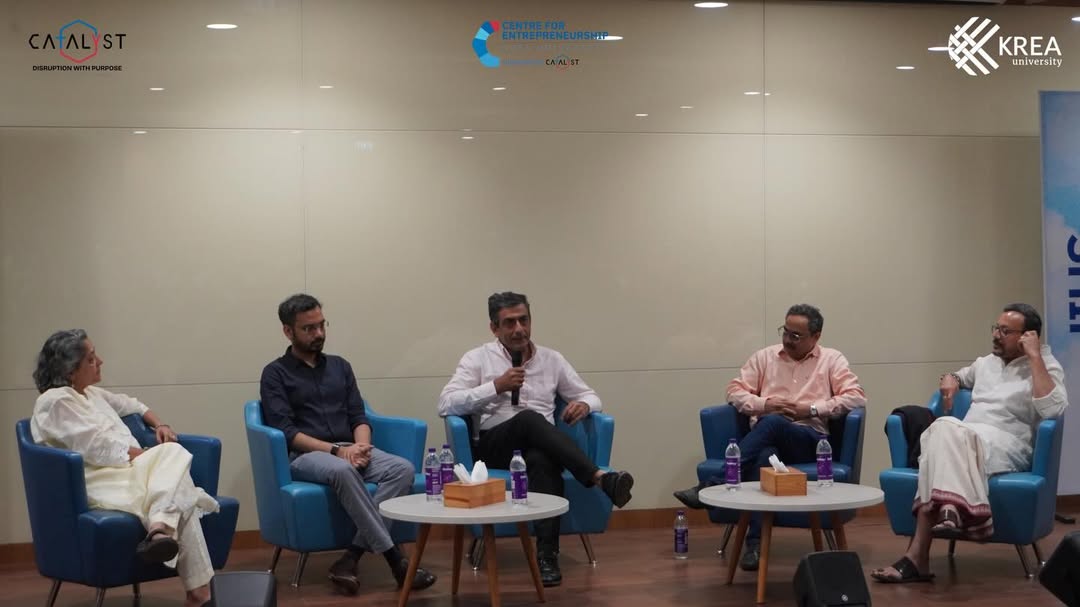
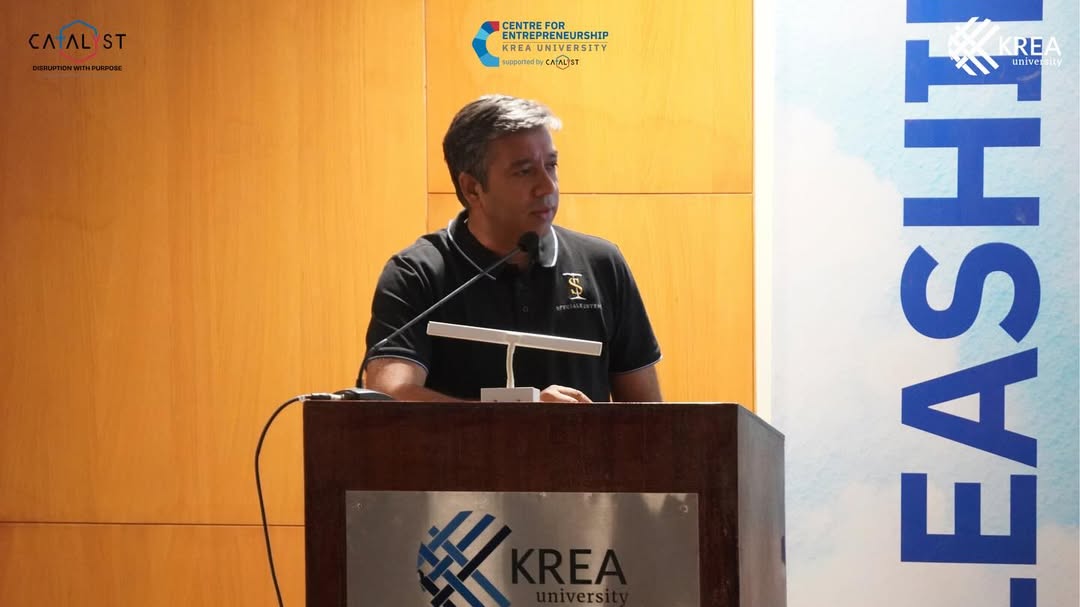
Bringing together a diverse group of voices from across the country, the event reflected the many perspectives that shape entrepreneurship in the real world. Founders, investors, incubator leaders, CEOs and VCs shared insights drawn from their own journeys, speaking candidly about early challenges, pivotal moments, failures, and lessons learned along the way. Their experiences offered students a grounded understanding of the entrepreneurial ecosystem, beyond just ideas and ambition.
The Krea community benefited from the presence and generosity of distinguished speakers and panellists, including Mithun Sacheti, Vishesh Rajaram, Mahavir Pratap Sharma, Manish Saksena, Anand Sri Ganesh, Sujay S, Innu Nevatia, Amit Mehta, and Vipul Sekhsaria. Their conversations underscored the importance of building with purpose, staying adaptable in changing environments, and recognising the value of mentorship and collaboration.
Championing Student - Led Ventures
The day culminated in the conferring of a seed fund by Lakshmi Narayanan, Chancellor, Krea University and Professor Nirmala Rao, Vice Chancellor, Krea University to three students from the School of Interwoven Arts and Sciences (SIAS) – Mitansh Aggarwal, Adwitiya Roy, and Viney Jain – for their start-up Sibling, a digital mental health platform transforming how schools deliver student wellbeing, marking a tangible first step from idea to enterprise.
Onwards & Upwards
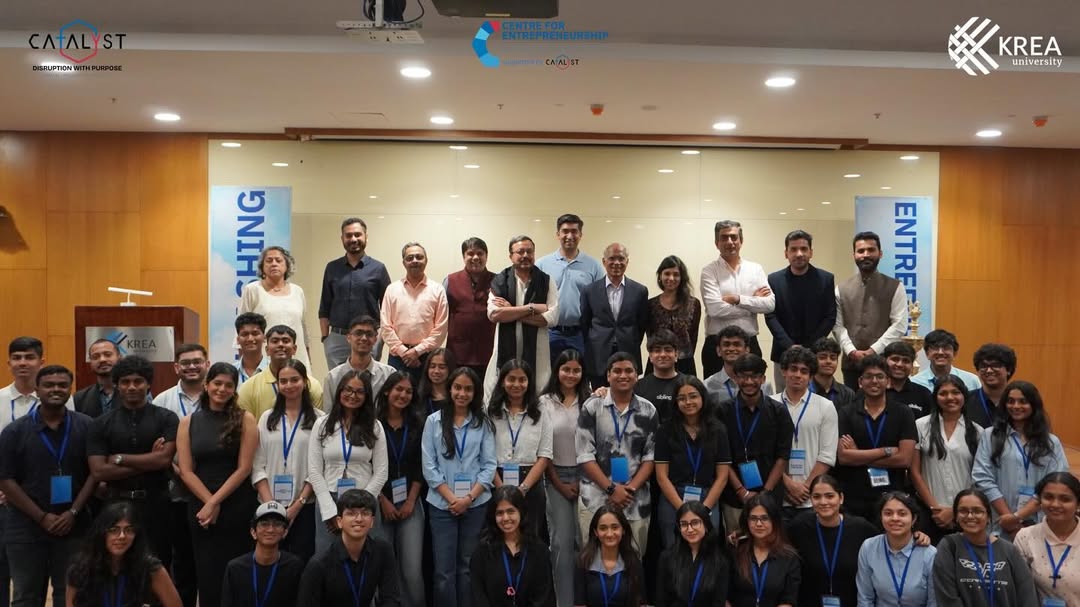
At its core, the Centre for Entrepreneurship, supported by Catalyst at Krea University, seeks to embed entrepreneurship as a mindset; one that extends across both academic and co-curricular life. The Centre aims to encourage students to think critically, identify real-world problems, and approach solutions with creativity and responsibility. By fostering an environment that values initiative, experimentation, and interdisciplinary thinking, CFE hopes to empower students to take confident steps toward building meaningful ventures.
As the Centre begins its journey, it does so with the belief that entrepreneurship thrives in communities that learn and grow together. The launch of CFE marks the beginning of such a shared endeavour at Krea; one that will continue to evolve alongside its students, faculty, and partners.
